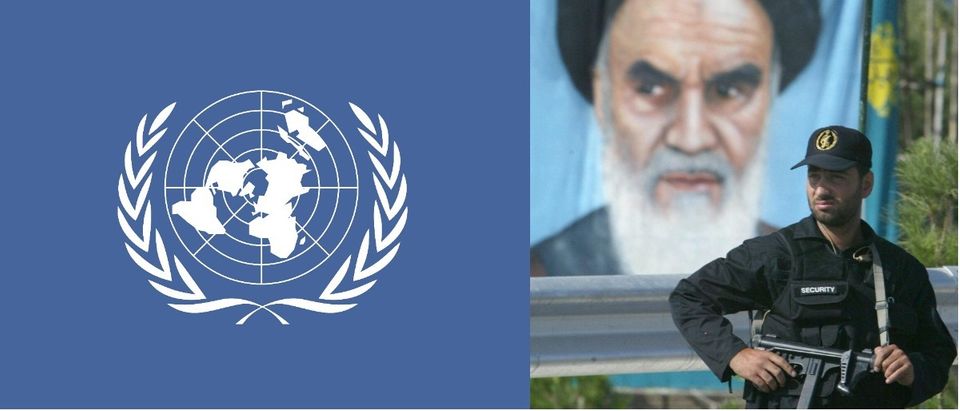The latest session of the United Nations Human Rights Council began this week and, unfortunately, it has been preceded by a very poor decision. The schedule of speakers includes Alireza Avayi. Despite holding the title of Justice Minister in the Islamic Republic of Iran, Avayi is himself an egregious violator of human rights. He has been sanctioned by the European Union for a number of reasons, but undoubtedly the worst incident on his record is his role in the mass execution of political prisoners in 1988.
That massacre has been described as one of the worst crimes against humanity since World War II. In accordance with a fatwa from the Islamic Republic’s founder, Ruhollah Khomeini, political prisoners were hauled before death commissions throughout the summer of 1988, in order to interrogate them over their political affiliations. After trials lasting as little as one minute, approximately 30,000 people — most of them members of the People’s Mojahedin Organization of Iran (PMOI/MEK) — were sent to their deaths. The PMOI remains the leading force for opposition to the theocratic regime.
As a prosecutor for the Revolutionary Court in the city of Dezful, Alireza Avayi personally ordered the deaths of numerous political prisoners, some only teenagers. He was appointed last year to the position of Justice Minister, replacing Mostafa Pourmohammadi, who had also played a major role in the 1988 massacre. As such, his appointment represented the Iranian government’s continued endorsement of that incident and its legacy.
So how in the world is Avayi slated to address the very body that is tasked with protecting the world against such gross abuses of human rights?
At a glance, this might seem like one mistake the United States can easily wash its hands of. But when it comes to human rights abuses and a coordinated response to them, international neglect is often reinforced by the absence of American leadership. That is certainly the case with regard to awareness of Avayi’s crimes and of the 1988 massacre more generally. The UN would be far less likely to give a public platform to such an individual if the US had ever taken appropriate action to bring him and his colleagues to justice.
In 1988, many Western policymakers were committed to a narrative of moderation within the Islamic Republic, in the interest of renewed trade with the oil-rich country. This approach predisposed the US and its allies to look askance at reports of an ongoing massacre, leaked to the West by the PMOI. The US has never acknowledged this as a mistake, much less done anything to compensate for it. In that light, when the rest of the world continues to ignore the 1988 massacre and its perpetrators, it is only following the US lead.
It is crucially important that this pattern be broken, and as soon as possible. After all, the legacy of those mass killings is a living legacy. As Avayi’s current role underscores, many of the perpetrators of the massacre occupy positions of power and influence in the Islamic Republic today. Until the US takes the lead in identifying those individuals and taking action against them, chances are they will continue to dance on the international stage.
The Trump White House has taken initial steps in the right direction by distancing itself from past American impulses to coddle and appease the Islamic Republic in hopes that its government would undertake its own economically beneficial moderation. But up to this point, there has been a lack of real action, at least in the area of human rights. Likewise, the UN Human Rights Council has shown itself to be conspicuously inattentive to the 1988 massacre.
Congress is now in a position to nudge the international community in the right direction. It can do so by finally passing a resolution on Iran’s worst single violation of human rights, and by taking the lead in pushing for the establishment of an independent commission of inquiry into that incident and its perpetrators.
At the very least, those who are identified as responsible must be sanctioned and shunned by the international community. Ultimately, they should face charges in the International Criminal Court, not just for the sake of their victims, but also to undermine Iran’s decades-long sense of impunity on this and other issues. This goal is intrinsic to the mission of the United Nations Human Rights Council, and its fulfillment would demonstrate the beneficial role of American leadership.
Reza Alizadeh is the political director of Iranian American Community of Florida (IAC-FL).
The views and opinions expressed in this commentary are those of the author and do not reflect the official position of The Daily Caller.


